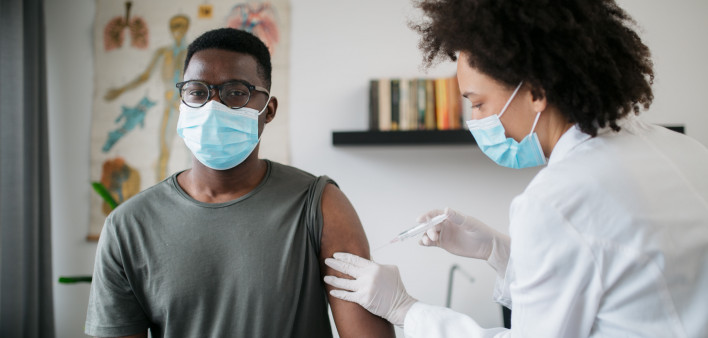Thus far this year, at least 21 people have been diagnosed with meningococcal disease amid an outbreak in Florida, and some of them have died, reports The Miami Herald. The outbreak remains primarily among gay and bisexual men and other men who have sex with men (MSM), including those with HIV. Several cases have been reported among college students, though health officials at this time believe they are unrelated to the larger outbreak of meningococcal disease.
The 21 cases of illness this year compares with a total of 27 cases in all of 2021, 17 cases in 2020 and 23 in 2019.
“Obviously that rings alarm bells with epidemiology and they want to start making sure that it’s known there’s a vaccine available for this,” Jeremy Redfern, press secretary for the Florida Department of Health, told the newspaper. Redfern confirmed that some people with meningococcal disease have died but said he did not know how many.
Responding to the outbreak, the Centers for Disease Control and Prevention (CDC) and the Florida Department of Health recommend that the following groups in Florida get vaccinated against meningococcal disease:
- College and university students
- Immunocompromised individuals
- People living with HIV
- Gay and bisexual men and other MSM
- Anyone in the above groups who received the vaccine more than five years ago
- Gay and bisexual men and other MSM traveling to Florida.
Meningococcal disease is a serious and sometimes fatal condition caused by the bacterium Neisseria meningitidis, six types of which are responsible for most cases of meningococcal disease in the world. The good news is that it’s not spread as easily as the flu or common cold. You can’t catch it simply by breathing the air where someone with the disease has been. Instead, transmission requires closer contact over a period of time, such as kissing or sharing food and drinks. But sharing close living quarters with someone with the illness who is coughing, for example, can be a risk.
Meningococcal disease leads to two outcomes:
- Meningitis, when the tissue covering the brain and spinal cord becomes infected and swollen. Symptoms usually include the sudden onset of fever, headache and stiff neck, but nausea, vomiting and confusion are also common.
- Bloodstream infection, when the bacteria multiply in the bloodstream and damage the lining of the blood vessels and cause bleeding into the skin and organs. Symptoms include fever or chills, tiredness, vomiting or diarrhea, cold hands and feet, severe aches (in the muscles, joints, chest or belly), rapid breathing and a dark purple rash.
Two types of meningococcal vaccines are used in the United States; both require two or three shots for maximum protection. Adults at elevated risk for the disease should receive booster shots throughout life as long as they remain at increased risk, recommends the CDC. The frequency of the booster shots depends on the type of vaccine used. For example, booster shots of the common MenACWY vaccines, which protect against several meningococcal bacteria, should be administered every five years. For more info on the vaccines, visit this CDC page.
In a fact sheet titled “Meningococcal Disease: What People Living with HIV Need to Know,” the CDC notes:
People living with HIV are at increased risk for meningococcal disease and having a low CD4 count or a high viral load further increases a person’s risk.
People 2 months old or older who are infected with HIV should receive a meningococcal conjugate vaccine that helps protect against four types (serogroups) of N. meningitidis: A, C, W, and Y. Booster doses of this vaccine will be needed throughout life. Most people who get a meningococcal vaccine do not have any serious problems with it. Side effects are usually mild and go away on their own within a few days, but serious reactions are also possible. Talk to your health care professional about when to receive this vaccine.
Outbreaks of meningococcal disease are rare, according to the CDC, explaining that “only about 2 to 3 out of every 100 cases of meningococcal disease in the United States are related to outbreaks. An outbreak occurs when there are multiple cases of meningococcal disease caused by the same type (serogroup) of N. meningitidis in a community over a short period of time. Depending on the size of the community, just two cases could be considered an outbreak.”
“This is just something that happens periodically,” Redfern, of Florida’s health department, told the Miami Herald. “We just get an outbreak every now and then, and it’s usually among the men-who-have-sex-with-men community, and sometimes it’s just random.”
UPDATE: In related news, it was reported during STD Awareness Week in April that a meningitis vaccine might provide over 30% protection against gonorrhea in young people, according to research published in the Lancet Infectious Diseases. This research is especially promising because cases of multidrug-resistant gonorrhea have been increasing globally in recent years. For more about that and STD Awareness Week, see “What Didn’t Slow Down During COVID-19? Sexually Transmitted Infections.”







Comments
Comments